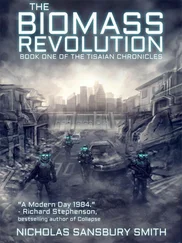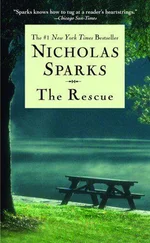“Perhaps you failed to see them because of the blood.”
“I saw what you saw. The same thing.”
“Well. We should have taken a trophy,” says Farris, and they are back where they began.
*
Before nightfall they pass another larger quarry. The landscape is more rugged now, with outcroppings of mossy rocks and scattered pine trees. By the light of the campfire, Evie studies the back of her left hand, looking for movement in the design. Her thoughts drift ahead to the well, not as a structure but as an event, an event that the State wants her to contain, as if meaning could ever be anything other than deferred, and in this deferral not nothingness but the revelation of absolute absence. A structurally unreadable sign, that’s what the well had become, and yet she was to engineer its repair, as if a breach that great could be repaired. The question was: why has the State sent her on a mission to repair a well that, they must know, is beyond repair?
During the night, beneath the stars, the sky full of silent drones, more than she could possibly imagine, Evie dreams of letters, and then those letters in the shape of a word: Cuitlaxcolli.
The next day, under the bright hot sun, they arrive at a false well, prior to the well itself. Quarried and built around the same time as the original well, this one’s purposes remained obscure. Its stone rim rises impressively from the landscape: its clean limestone lines that make an enormous circle, its sheer whiteness in the sun, the way it seems somehow to divide nature from itself.
As they approach, the well wall looms higher than it appears possible, as if it has grown as they have come nearer. At least ten meters high and stretching enormous distances as it curves around to meet itself again. On the other side of the curving wall, presumably, the well itself, as deep as the imagination would allow. As they enter its cool shadow it appears that it has emerged out of the earth rather than being built upon it. A flock of drones passes silently overhead, their shadows racing across the plain toward Evie and Farris and then disappearing into the well wall’s shadow.
After half a day’s westerly walk parallel to the false well, they reach the end and head north again, the well receding in the distance. Soon, the plain gives way to outcroppings of trees and they stop at a good-sized lake where they gather water, catch fish, and rest. And then north again into a vast pine forest that holds the cool air and seems untouched by the will of the State. For most of the time Evie walks in front and on the straight parts Farris follows in sync, step for step, so that it sounds to Evie as if she is walking alone. In these long stretches she wonders what the differences are, really, between the false well and the real well they are headed toward. At certain points the forest is so thick with trees that she feels it difficult to generate any thought at all, and so she walks without thinking, her legs mechanically carrying her forward. Without knowing how it happened her hands have become sticky with pine sap.
They reverse positions: now Evie follows Farris. The forest stretches on and on as if only to create the very conditions of its own existence. Evie imagines for a while that the forest is the well. As a child she had heard that the well had been stuffed with bodies of the State’s enemies, so that it was really a graveyard. A mass grave. And other stories that it wasn’t built by the State at all, but by the kingdom or whatever it was that the State had conquered hundreds of years ago. And others yet that it wasn’t a well even but something natural, something of nature itself. The well appeared and disappeared from history books. Often it was spoken of, and then suddenly it was not. It appeared on stamps and then those stamps were confiscated, along with the envelopes they were affixed to. A story made the rounds that those without limbs had had them forcibly removed to eradicate the symbols of the well that had been tattooed upon them. Then just as suddenly the well was heralded on all the State’s banners. The well became a natural resource and then, the next week, a toxic waste site. A documentary about the well’s early existence was shown on television and the following night the same documentary was re-advertised as a feature film masquerading as a documentary.
It’s safe to say that people of Evie’s generation were raised to have a schizophrenic relationship with the well, at once desiring and detesting it, acknowledging its existence and then disavowing it, and on and on. As darkness seeps into the pine forest Evie thinks about this, and then suddenly realizes that Farris is gone. Evie stops, calls out his name. It’s the first time she has spoken all day and the sound of her own voice startles her.
“Farris,” she calls out, and the name just hangs there in the air for a moment and then disappears, along with Farris himself.
Suddenly Evie feels stupid standing alone in the forest. So she keeps walking, alone, until it’s too dark to continue.
And then she makes her camp for the night.
*
As she sleeps in the dark, Evie cannot have known that the black sky has filled with silent drones so completely autonomous that even to their ground controllers their purpose is obscure, or that the forest ferns produce haploid spores that travel impossible distances, or that her lost sister Kate is sleeping also on some other patch of the earth, or that she has not yet even arrived at the deepest part of the forest, or that the animals that have followed her and Farris earlier are still nearby and that they aren’t animals at all but, like the drones, machines in the guise of animals, created by the State for the simple reason that they could be created and once created set loose to explore, as if the State, having already discovered and mapped itself, created these things to experience itself anew, not through the eyes of humans but machines, and not to collect information but to forget information so that it could be discovered again as if for the first time, or that one theory of the well — being debated at this very moment by functionaries of the State — was that the well existed only insofar as it receded from view, a perpetually vanishing vanishing point, and that Evie’s useless, carefully tended tools are already antiques aged beyond use and that she has been on this journey for a very, very long time, not days but months. Or years.
*
In the morning she continues, without Farris, passing through the thickest part of the forest and then out into an expanse of grasslands that give way to a village whose flags bear woven symbols that Evie has not seen before. Three men with wooden rifles spot her on the outskirts and follow her casually as she takes the road that skirts the town. They don’t threaten her. She imagines that, if she had wanted to, they would allow her to enter the village.
It’s not that she misses Farris — what is there to miss? — but rather that she misses the idea of Farris’s presence, as quiet and unobtrusive and even menacing as it was. As Evie leaves the village, the road straightens out and after a few miles takes her by another lime quarry, larger than the previous one, an impossibly sharp-angled cube subtracted from the earth, a pool of bright, glass-flat turquoise water at the bottom. She stands at the edge, peering in, and knows that the well is not far off, and that the stone from this quarry had been used to build it. Three very large birds circle silently in the sky above her, and she senses she’s being watched in a way she hasn’t felt before.
If it’s true that the drones have evolved somehow as self-sustaining machines detached from the State itself, then why did the State allow them to exist? What data could they possibly be gathering and transmitting, and to whom or what? Evie suddenly feels the urge to shoot one down, to watch it with the eyes of an insurgent spiral into the turquoise water far below. Better yet to have it fall at her feet so that she could, with her bare hands, determine once and for all what it was made of, where evolution had taken it. What would it feel like to grab hold of the neck of one of those things and squeeze until the lights or cameras or whatever its eyes were made of went out? Did it store the data it collected or just transmit it raw and unfiltered to the nearest antenna tower? Could it fly alone or did it need the others (they always appeared in flocks) to navigate?
Читать дальше












![Nicholas Timmins - The Five Giants [New Edition] - A Biography of the Welfare State](/books/701739/nicholas-timmins-the-five-giants-new-edition-a-thumb.webp)